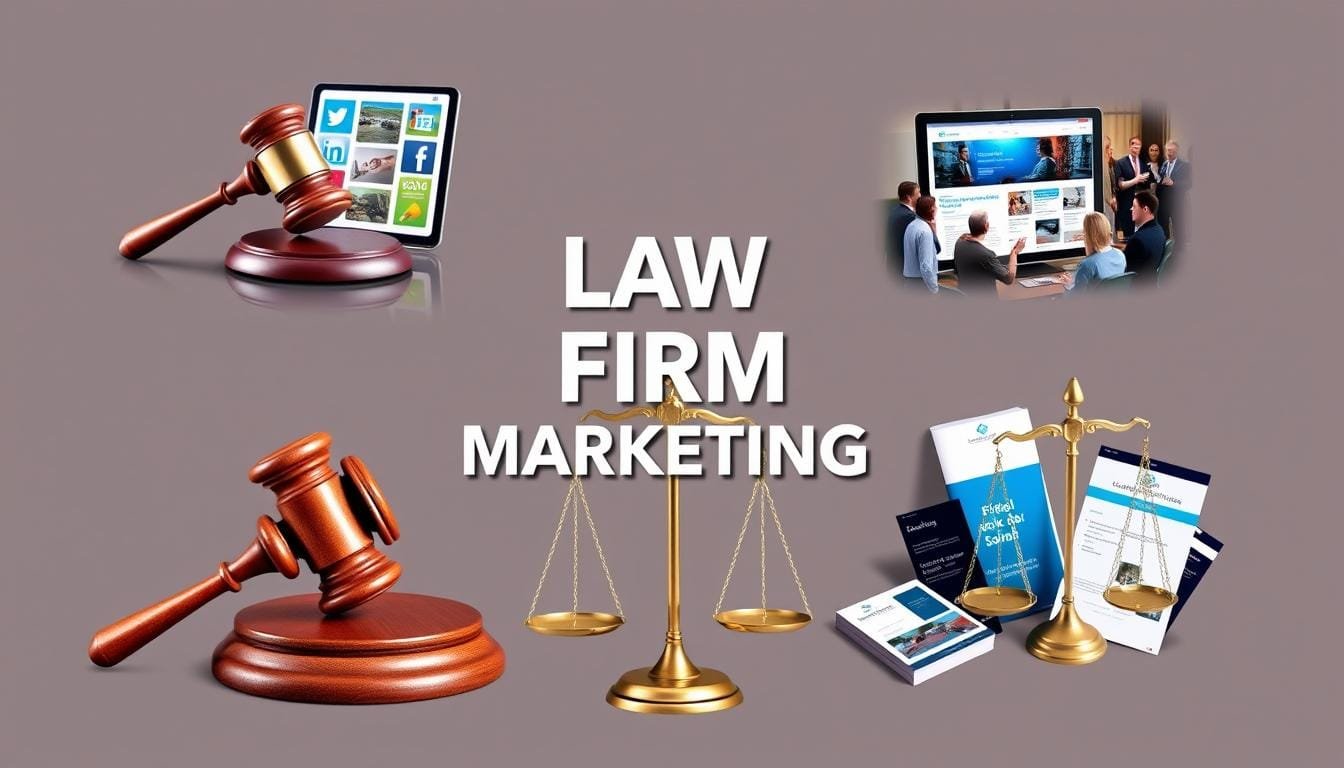Did you know that nearly 70% of potential clients* turn to online reviews and profiles when choosing a lawyer? This shows how important ethical legal advertising is for law firms today. At Law Webber, we know that your marketing strategy’s success depends on its reach and ethics. The American Bar Association (ABA) and state bars have rules to protect both clients and lawyers.
The ABA’s Model Rules of Professional Conduct, Rules 7.1–7.3, and California’s Business and Professions Code set the rules for legal ads. Breaking these rules can harm your firm’s reputation and your career. So, it’s key to know the rules of honest law practice marketing.
Key Takeaways
- Legal advertising must align with ABA and state regulations to guard against misleading claims.
- Maintaining client confidentiality is paramount in all advertising efforts.
- Transparency in advertising enhances trust and builds a stronger client relationship.
- Careful selection of advertising platforms can elevate your firm’s visibility while ensuring ethical compliance.
- Understanding specific legal advertising rules helps prevent potential disciplinary action.
- Engaging content marketing strategies can fortify your firm’s reputation in the community.
Understanding Ethical Legal Advertising
Legal advertising is key in connecting lawyers with clients. Ethics are vital in this area, as they build trust in legal professionals. Law firms that follow advertising rules protect their reputation and the legal field’s integrity.
The Importance of Ethics in Legal Marketing
Ethical marketing builds strong lawyer-client relationships. It makes clients feel important and well-informed. Staying ethical shows respect for the legal community.
Overview of Legal Advertising Regulations
The American Bar Association (ABA) sets rules for legal ads. For example, Model Rule 7.1 bans false ads about services. Model Rule 7.2 lets lawyers share service info but limits how they reach out to clients.
Consequences of Unethical Advertising
Unethical ads can lead to serious penalties, like losing a law license. Breaking rules can harm a firm’s reputation and client trust. It’s crucial to know the rules and promote services ethically.
Key Principles of Ethical Legal Advertising
Knowing the basics of ethical legal advertising helps law firms stay credible and follow the rules. It’s all about being honest, keeping secrets, and being clear. This way, we make our marketing better and follow legal marketing ethics.
Honesty and Transparency in Advertising
Honesty and being open are key in legal ads online. Clients need to know the truth about what lawyers can do. If ads are misleading, it can hurt the firm’s reputation and break the rules of clear legal ads.
Sticking to these values builds trust and keeps clients coming back.
Respecting Client Confidentiality
Keeping client secrets is a big deal in legal ads. Lawyers should only share case details with permission. This keeps clients’ trust and follows legal marketing ethics.
Avoiding Misleading Claims
Legal marketing ethics say no to false claims in ads. Saying you’re an expert when you’re not can cause big problems. Honest ads help keep a firm’s good name and avoid trouble.

| Key Performance Indicators (KPI) | Successful Campaign Metrics | Common Pitfalls |
|---|---|---|
| New Client Leads | 150 | Misleading Statements |
| Conversion Rate | 25% | Client Confidentiality Breaches |
| Return on Investment (ROI) | 300% | Unverified Testimonials |
Following these rules makes our legal marketing better and builds a strong reputation. Ethical ads show respect for our profession and our clients.
Effective Strategies for Ethical Legal Advertising
Using effective strategies for legal advertising can really help a law firm stand out. It builds trust with clients, making the brand stronger and client relationships better. Here are three main ways to do this.
Establishing Trust Through Content Marketing
Content marketing is a great way to build trust and authority. By making informative blog posts, articles, and webinars, we teach potential clients about legal issues. This approach fits well with ethical digital marketing for lawyers, giving clients useful info without pressure.
Regularly posting high-quality content shows our expertise. It attracts clients looking for specific legal services while keeping our marketing honest.
Leveraging Social Media Responsibly
Social media is a good place to connect with people. It lets firms share useful content and keep a professional image. Lawyers need to be careful, sticking to honesty and transparency.
By being respectful and informative, firms can build good relationships. Meaningful social media engagement boosts the firm’s reputation with both peers and clients.
Importance of Client Testimonials and Reviews
Client testimonials are key to credibility. We must get reviews ethically, without offering incentives. Honest feedback helps build trust with new clients.
Showing positive experiences from past clients improves our reputation. Sharing testimonials honestly aligns with ethical digital marketing for lawyers, showing transparency in our ads.

Navigating Legal Advertising Platforms
Effective legal advertising is about more than just your message. It’s also about choosing the right platform. Each law firm is unique, with its own areas of practice, values, and target audience. Knowing this helps us follow the rules for advertising.
Are you using social media, print ads, or focusing on online presence? The platform you pick affects how well you connect with clients and how visible your firm is.
Choosing the Right Channels for Your Practice
The world of advertising offers many choices. It’s crucial to tailor our approach to fit our needs. Some places let us advertise widely online, while others have strict rules. Keeping up with these rules helps us stay ethical.
Targeted ads can also help us reach the right people without invading their privacy. This way, we can connect with potential clients more effectively.
Compliance with State Bar Advertising Rules
It’s key to understand the rules for advertising in each state. These rules cover everything from honest ads to how we talk to potential clients. For example, lying or misleading people is a big no-no.
Being clear and honest in our ads is not just right; it’s required. Also, client testimonials must be real and follow the rules. This ensures our marketing is both effective and ethical.
Measuring the Effectiveness of Your Advertising Efforts
Finally, it’s important to check how well our ads are doing. By looking at our results, we can make our ads better and more effective. This might mean setting goals, tracking how people respond, and regularly checking our methods.
By doing this, we become more trusted by our clients. This trust helps our law practice grow.






